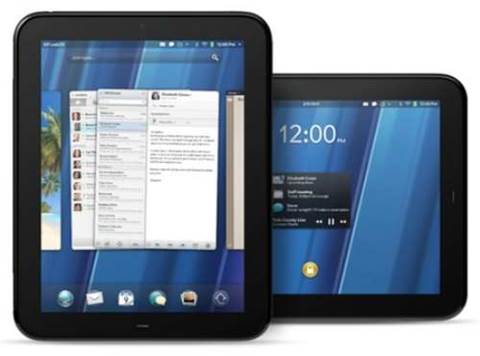HP’s long-awaited announcement this morning regarding the future of its PSG division has put to rest a period of uncertainty within the company’s Australian channel.
New CEO Meg Whitman this morning confirmed the PC brand would remain in house at HP after an internal review found the division would not perform as well as a standalone company. It comes less than three months after HP's former CEO Leo Apotheker revealed plans to sell off the group.
The internal investigation studied the PSG's contribution to the company's overall sales and brand recognition. Whitman said in a statement the company would be stronger with its PC brand.
"It's clear after our analysis that keeping PSG within HP is right for our customers and partners, right for shareholders, and right for employees."
The decision signals the end of a long period of instability for the company's local partners. Many have been waiting anxiously since Apotheker first raised the possibility of a PSG sale, unsure how to proceed due to lingering doubts around the survival of the leading PC brand.
TechFlare Solutions has a portfolio of HP products containing servers, desktops and point-of-sale products. CEO Geoff Olds is certain the announcement is simply a strategy to soothe partners until HP sells the division off in several years time.
“When you look at mobility and what’s spinning the wheel out there, I don’t see how they can’t,” he said.
“The PC business is dying, so the question they have to ask is how long they want to hold onto that, and is there value in keeping it,” he added. “The answer at some stage will be no. They’ll be pushing cloud and software solutions, and hardware will be something to be pushed off eventually.”
Olds was yet to receive formal communication from HP regarding the decision, but said he was more concerned by the company’s handling of the issue since Apotheker’s departure in August.
“What I want to know is how does a massive corporate like that allow the cat out of the bag and get everyone shocked and worried if it wasn’t going to do it?” he said. “You have to ask yourself how it got to where it did. You don’t do what HP did in the public domain, it should be done behind closed doors.”
Australian-based HP reseller Calvert Technologies supplies its customers with an HP portfolio of products primarily made up of hardware. CEO Dean Calvert agreed with Olds’ comments around HP’s handling of the issue, but said many suffer from the benefit of hindsight.
He told CRN he was pleased the company had made the decision to retain the PSG as its ability to provide a complete solution of products differentiated HP from competitors. Calvert is similarly yet to hear formally from the company.
In a US conference call this morning Whitman emphasised the decision had the full support of the board, unlike her predecessor’s sale announcement, and recognised the channel mood when noting feedback that ‘uncertainty was not the company’s friend’.
Whitman broke her silence on her future strategy for HP’s PC brand and spoke of the continuing focus on a Microsoft-based Windows 8 tablet, as well as the need for the company to be in the tablet business. This is despite the company in August dumping its TouchPad tablet barely a week after it was launched in Australia.
"We’re certainly going to be there with Windows 8, we’re going to make another run at that business, and we’ll make a decision about the long term future of webOS in the next couple of months,” she said.
Competitor Dell weighed in on the issue this morning, attacking HP’s instability over the last few months saying its own channel partners value the “certainty and predictability” of working with Dell.
Gartner results for Q3 2011 showed HP remained the number one PC maker, while Dell lost its second place position to Lenovo. When asked if Dell expected HP’s decision to remain in the PC game would further hurt Dell's sales, a company spokesman told CRN it was not Dell strategy to “chase unit share at low or unprofitable price points”.
“Lenovo’s recent share growth largely comes from acquisitions, partnerships and chasing unit share at low value price points,” he said. “This is not Dell’s business and we will not chase Lenovo to the bottom. Our core business remains healthy and in the last quarter client revenue grew 6 per cent sequentially.”
He declined to comment on how HP’s decision would affect Dell’s Australian partner base.
Whitman said HP would not make any major announcements until its Q4 2011 earnings conference call on November 21.





.jpg&h=142&w=230&c=1&s=1)


.png&h=142&w=230&c=1&s=1)




.jpg&w=100&c=1&s=0)







_(1).jpg&q=95&h=298&w=480&c=1&s=1)



